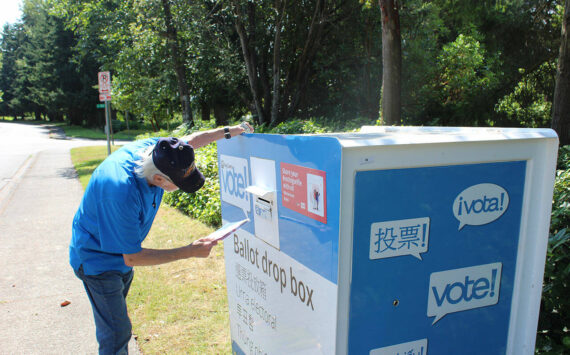Business Information Systems (BIS) Department officials provided an update of the citys recently implemented new computer software system that has been plagued by glitches and customer service complaints.
BIS officials assured members of the City Council and Public Utility Board during Tuesdays joint study session that problems are being worked on, while asking for patience from the public.
The $50 million overhaul of the citys electronic and manual processes is designed to help the city work more efficiently and serve citizens better. The new system, which was phased in late last year, affects finance, human resources, work management and customer information systems in several general government departments, as well as public utilities.
These are things that needed to be addressed, said BIS Department Director Dave Otto, of the difficulties associated with the complex city-wide application of such a large project.
For example, the conversion of accounts from the old system to the new system has proved problematic. Some data from balance sheet accounts (assets and liabilities) and income statement accounts (revenues and expenses) hasnt migrated properly, explained Joe Delaney, assistant finance director.
Its the No. 1 priority for the Finance Department today, he said, noting there is a full-time effort ongoing to fix the problem and that old accounts should be closed by the end of the year.
Were hoping there will be a smooth transition as we move down this path together, Delaney said.
We havent done this before, he cautioned.
Officials also reported some internal reporting complications, with a real time business warehouse not being able to provide up to date financial reports. Officials recommended extracting such information from a static environment – in other words, not using present data – so as not to risk crashing the system, which they said was unlikely.
Reports are available, said Sherry Crawford, assistant to the management budget analysis director. However, information is not being posted properly, she explained, in terms of the upcoming biennium budget, as well as credits and expenditures.
The complexity of the new system is why the department is not able to get information out faster, Crawford said, although the department is still on target to produce the 2005-2006 budget.
Its a continual process of data cleansing, where we identify a problem and fix it, Crawford said.
Is your list getting longer or shorter? asked Councilwoman Julie Anderson, of the problems that need to be fixed.
Otto said the list was getting bigger, but said that was normal for a project of this size and scope.
We are making progress, he said. We are making progress at stabilization.
Another problem addressed by officials was the issue of subpar customer service. Several council members indicated they heard from members of the public not happy with the new system.
Deputy Mayor Bill Evans said he has been approached by numerous people complaining about skyrocketing utility bills, as well as grumblings about not being able to get in touch with Tacoma Public Utilities.
He said a business owner told him he was put on hold 15 times during one phone conversation.
I don’t know what to say to people, Evans said.
Councilman Mike Lonergan also said he had been approached by frustrated customers.
What are you doing? he asked BIS Department officials.
Customer Service Manager Bill Schatz addressed the issue head on, providing some context and promising improvement.
Utility bills are higher due to this years colder winter and rate increases, he said. There is a learning curve for employees using the new system, so they are spending more time on the phone with each customer, thereby making getting in touch with Tacoma Public Utilities sometimes difficult. Also, there are a higher volume of calls this time of year, he noted, while also pointing out that pay stations located throughout the city are helping to alleviate the problem somewhat. This is very typical, Schatz said.
It wasnt all bad news, however, as some BIS Department customer service successes were reported.
Utility bills are being mailed and theyre accurate, Schatz said, with about a 90 percent success rate.
Similar systems require between six and nine months to achieve similar results, he said, adding the success rate will improve.
Other successes:
– About 10,000 citizens have registered as users on tacomaservices.org and have paid more than $1 million in utility bills online.
– About 6,700 of these customers receive their bill by e-mail only, saving the city the cost of printing and mailing.
– Tacomaservices.org now has Move-in and Move-out functions for customers to request services when its convenient for them.
– Customers can get deposits included with their bills.
– Customers can select a preferred payment due date for their bills.
The transition of the BIS Department from TUI Consulting, which helped implement the new system, to city staff is under way, with a majority of TUI consultants leaving by March 31.
Its like your first bicycle ride – youre always nervous when they take the training wheels off, Otto said.
BIS officials characterized the new system as an infant that will continue to grow and change over time. Problems are being documented and are being addressed on a daily basis, they said.
A similar joint study session was held in November, where BIS officials stressed the long term savings of the new system. Council members requested regular updates on the progress of BIS.




